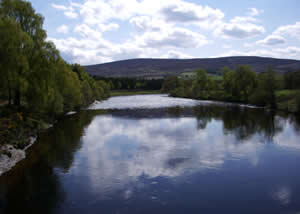 Biogeochemistry combines the studies of the physical, chemical, biological and human aspects of natural systems. Our focus on catchments means that we adopt a holistic approach to investigate how the complex interactions between these factors impact on soil and water quality. The goal of this work is to provide a fundamental scientific platform on which effective management decisions can be based to guide the future of catchment water quality in Scotland.
Biogeochemistry combines the studies of the physical, chemical, biological and human aspects of natural systems. Our focus on catchments means that we adopt a holistic approach to investigate how the complex interactions between these factors impact on soil and water quality. The goal of this work is to provide a fundamental scientific platform on which effective management decisions can be based to guide the future of catchment water quality in Scotland.
Our expertise covers a range of environments and hence issues, from agricultural nutrients and eutrophication in the lowlands to organic carbon cycling and co-transport of contaminants in the uplands. Our investigations are grounded in long-term data collection and targeted experimentation at key sites which have allowed the development of strong process-based and predictive modelling capacities. We also understand the need to integrate our process-knowledge into larger scales pertinent to today’s river catchment management planning and to maintain interdisciplinarity with other soil science, ecology and socio-economic specialists.
Find out more about our work on:
- Dissolved organic matter dynamics
- Phosphorus losses from soils to waters
- Freshwater sediment biogeochemistry
- Biogeochemical modelling
- Bacteria-colloid interactions
|
Updated: 23 Jan 2024, Content by: MC
|

